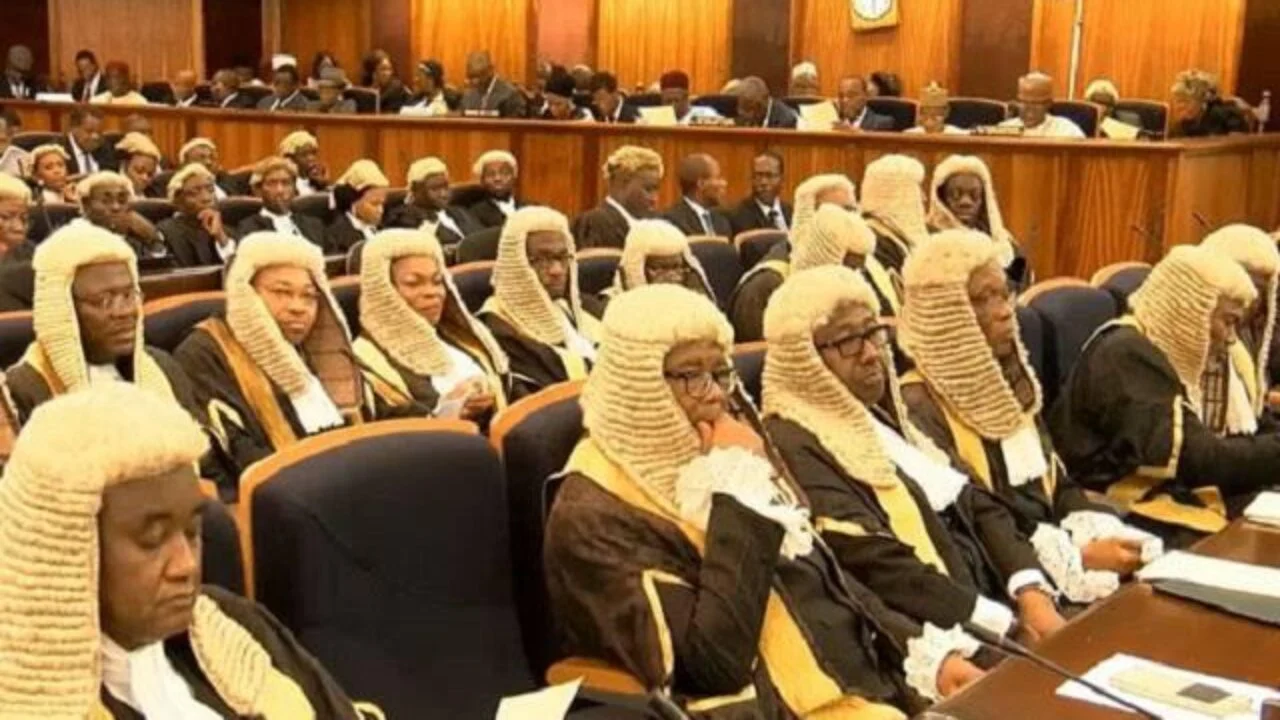The Supreme Court of Nigeria has scheduled a hearing for October 22 to address a lawsuit filed by 16 state governments challenging the constitutionality of the law that established the Economic and Financial Crimes Commission (EFCC).
This case, which consolidates multiple legal challenges, could redefine the boundaries of federal and state powers in Nigeria’s fight against corruption.
A seven-member panel of justices, led by Justice Uwani Abba-Aji, set the date after approving the consolidation of cases and allowing the states to join as co-plaintiffs.
The lawsuit was originally initiated by the Kogi State Government through its Attorney General, and has now drawn participation from states including Ondo, Edo, Oyo, Ogun, Nasarawa, Kebbi, Katsina, Sokoto, Jigawa, Enugu, Benue, Anambra, Plateau, Cross River, and Niger.
The core of the dispute centers around the 2004 EFCC Establishment Act.
READ ALSO: Court remands couple for alleged cruelty to children in Adamawa
The plaintiffs argue that the law is unconstitutional, as it allegedly bypassed the requirement for the majority consent of state Houses of Assembly under Section 12 of the amended 1999 Constitution.
This section mandates that international conventions, such as the United Nations Convention against Corruption, must be ratified by state legislatures before they can be domestically enforced. The states claim this step was not followed, rendering the EFCC Act invalid within their jurisdictions.
The legal challenge comes on the heels of a prior Supreme Court ruling in the case of Dr. Joseph Nwobike vs. Federal Republic of Nigeria, where the court determined that the EFCC Act had incorporated elements of the UN Convention against corruption.
The 16 states are now leveraging this precedent to assert that the EFCC law cannot be imposed on states that did not consent to it.
Speaking on behalf of Kogi State, senior advocate Abdulwahab Mohammed emphasized the need for the Supreme Court to clarify the way forward. “This honourable court needs to decide how to proceed, as 13 states have requested to join as co-plaintiffs, while two others seek case consolidation,” he said.
READ ALSO: EFCC arrests 33 suspected internet fraudsters in Port Harcourt
Mohammed urged the court to grant the necessary joinders and guide the plaintiffs in submitting consolidated filings within a week.
Legal experts are closely watching the case, as its outcome could have far-reaching implications for federal-state relations.
Constitutional lawyer Adetokunbo Mumuni noted, “This case highlights a critical point about the legislative process in Nigeria and the scope of federal authority in enacting laws that directly impact the states.
A ruling in favor of the plaintiffs could significantly alter the balance of power.”
As the October 22 hearing approaches, the spotlight will be on how the Supreme Court interprets the intersection of state autonomy and federal legislative authority in the fight against financial crimes.

 Entertainment6 days ago
Entertainment6 days ago
 Health5 days ago
Health5 days ago
 Crime5 days ago
Crime5 days ago
 Education7 days ago
Education7 days ago
 Health7 days ago
Health7 days ago
 Comments and Issues6 days ago
Comments and Issues6 days ago
 Football6 days ago
Football6 days ago
 Latest6 days ago
Latest6 days ago

